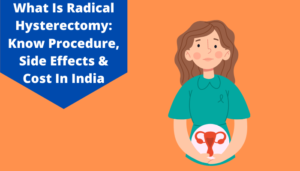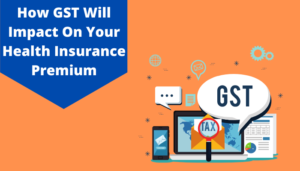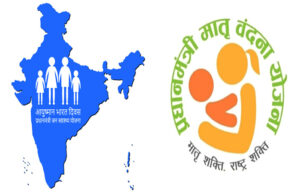Purchase Top Cardiac Health Insurance Policy Online
Cardiac Health Insurance
Cardiac health ailments have alarming statistics; not only around the world but in India, too. In India, one in four deaths is due to cardiovascular diseases (CVD). Ischemic heart disease and stroke are the predominant causes and are responsible for 80% of CVD deaths. Cardiac diseases cost a fortune. The best way to tackle cardiac health related expenses is to buy a cardiac health insurance plan.
What are cardiac health policies? Cardiac health insurance plans are specifically designed to cover the expenses of cardiac diseases. Looking at the rise of cardiac ailments and the rise inthe disease, many health insurers introduced special cardiac health plans.
Life is uncertain. Today, even the healthiest of people are prone to lifestyle diseases, including those related to the heart, owing to urbanization, pollution, food processing, chemicals and toxins in the atmosphere etc. Anyone can have a cardiac ailment. The best way to tackle the disease is to be prepared for the treatment and financial burdens that the ailment brings with it.
What is a cardiac health insurance plan?
Cardiac health insurance plans are specifically designed to offer financial protection towards medical expenses arising from the treatment of heart-related diseases. Cardiac Mediclaim plans cover a broad range of cardiac conditions and diseases. Cardiac plans are critical insurance plans and give out payout as lump sum.
Some of the expenses covered under cardiac plans are angioplasty, bypass surgery, heart attack treatment and pacemaker insertion. Most cardiac plans are available for the age group of 18 years to 65 years.
Features of cardiac health plan
- Cardiac plans provide a wide range of coverage for heart-related conditions and ailments. Cardiovascular treatments such as diagnosis tests, angioplasty, heart surgery, insertion of pacemaker etc.
- Cardiac Mediclaim plans are critical health plans and hence they pay out the full sum insured as lump-sum as soon as the disease is diagnosed.
- The policyholder can avail of tax benefits under Section 80D of the Income Tax Act.
- Most cardiac health insurance plans have an entry age of 18 years and the maximum age is 65 years.
- Usually, health insurance companies have a waiting period for cardiac health plans.
Why is a cardiac health insurance plan important?
People often believe that only those with existing heart ailments need to buy cardiac plans. But that’s not the right approach to planning one’s healthcare needs. Even though a person might be healthy today, they could suffer a heart problem a few years down the line. Heart Mediclaim insurance can be a safety net, especially if you can categorized as vulnerable.
Indians are more susceptible to heart ailments
Deaths due to cardiovascular diseases have been increasing in India. Moreover, there is a rising trend of heart disease-related deaths in people in the age group of 30 years to 70 years. Heart related illnesses have been directly related to work stress, which means people in their most productive years are being affected.
Studies show that compared to other people the world over, Indians are more prone to serious heart ailments that lead to death. Moreover, India has seen rapid urbanization and advancement in the last few decades, which has caused a rapid increase in heart ailments.
High treatment costs
The cost of cardiovascular disease treatment is quite high. Even the simplest of procedures such as angioplasty can cost a few lakh of rupees. The more severe the condition, the more expensive the treatment. Moreover, hospitals in cities are more expensive than those in towns. With the advancement of medical science, treatments of heart diseases are becoming costlier by the day. Heart ailments are serious diseases and require quality care and treatment. To meet these rising costs and medical inflation, it is important to buy cardiac health insurance.
Be stress-free and avail the required treatments
Cardiac health insurance plans can provide special benefits specific to cardiac illnesses and come to the rescue of the policyholder when the need arises. Insurance for heart disease can help policyholders live a life free of financial stress and can make it possible for them to get quality treatment when the need arises.
Benefits of Cardiac Health Insurance
Most regular health insurance plans do not provide coverage for cardiac care. Hence, buying a cardiac care plan has many benefits to manage cardiac ailments with proper treatment when required:
Cardiac health check-up: Many cardiac health policies offer cardiac health checkups as part of the policy.
No claim bonus or NCB: Cardiac health insurance policyholders get no-claim bonus with every claim-free year.
Domiciliary hospitalization: Cardiac illnesses can have prolonged treatments, which may be taken at home. Cardiac health insurance covers domiciliary hospitalization expenses too.
Ambulance cover: There are different kinds of ambulances available depending on the in- travel medical care needs of the patient. Cardiac insurance plans offer coverage for ambulance expenses.
Pre- and post-hospitalization: Heart diseases are serious ailments and require treatment spread over extensive time periods, pre and post-hospitalization. Cardiac policies offer coverage for such expenses.
Eligibility for heart health insurance plans
Different insurance companies may have different eligibility criteria for heart Mediclaim plans. However, there are some key criteria that are more or less common.
Entry age: The entry age for cardiac insurance plans is usually between 18 years and 65 years of age. Many health insurance companies offer heart health insurance plans for children starting at the age of 10.
Pre-existing diseases: Some health insurers do not include pre-existing heart ailments in the cardiac plans and have a waiting period of a few months to a few years.
Medical conditions and treatments: Some insurers offer cardiac plans only to those who have undergone certain heart treatment procedures within a specified duration.
Cancellation of heart health plan
Most health insurance companies provide a free-look period for 15 days after the policyholder received the document. The policyholder can choose to cancel the policy within 15 days if they are not satisfied with it. When the policy is cancelled during the free-look period, the insured receives refund after minor deductions towards administrative charges.
The policyholder can cancel their heart insurance policy at any time during the renewal date or before, but might not receive any refund amount. Different insurers follow different rules in this regard.
Renewal of cardiac insurance
Cardiac insurance plans, like other health insurance plans, can be renewed annually by continuing to pay the premium. The process of renewing a heart Mediclaim policy is easy and quick. A policyholder can renew the policy by paying the premium through any mode – online or cheque. Once the insurance company authorizes the payment, the policyholder receives the hard copy and soft copy of the renewed policy. If the policyholder has had a claim-free year, the insurance company makes the necessary calculations in order to proportionately increase the sum insured.
Portability of heart Mediclaim plan
Portability is a procedure through which a policyholder can transfer an existing policy within the same insurance company or to another insurance company. Insurance porting can help policyholders switch to better options. In simple terms, portability means transferring an existing heart health insurance policy to another company for better features and advantages or better service standards.
Heart insurance policyholders are allowed to port policies. However, this feature depends on the insurer’s discretion. If the insurance company allows porting, the policyholder can opt to switch the plan or the insurer, if not satisfied.
Factors to consider when buying heart insurance plan
Policyholders must consider several factors when buying cardiac health insurance plans. As these plans could be more expensive compared to general health insurance plans. Here are some things to consider:
Coverage of cardiac conditions: When buying a heart health insurance plan, it is essential to choose one that provides maximum coverage. One must take into consideration the number of heart-related illnesses or conditions covered in a plan as different insurers offer coverage for different types of conditions. Hence, the more heart conditions covered in the cardiac plan, the better it is for the policyholder.
Built-in extra coverage options: Many health insurance companies provide the option of built-in coverage. It includes coverage such as personal accidents, child education benefit, free health check-up, among others, within the heart insurance policies. It should be noted that built-in coverage might add to the premium amount of the Mediclaim for heart patients. Hence, if you are opting for this feature, you must make the necessary premium calculations before buying the policy.
Pre-existing diseases: It is essential to check the pre-existing diseases clause in the heart insurance policy. While some plans provide coverage for all or some pre-existing conditions after a waiting period, some plans might not cover pre-existing ailments at all.
Waiting period: Most health insurance plans have a waiting period. Cardiac health insurance plans also have a waiting period that ranges from a few months to a few years. It is advisable to buy a plan that has a shorter waiting period. Many heart insurance policies have a waiting period ranging from 3 to 4 years.
Free-look: Most insurance companies provide the free-look option, which allows the buyer to cancel the cardiac policy within 15 days, if they are not satisfied with the policy. Suppose the policyholder cancels the policy within 15 days of purchasing it. In that case, they are eligible for a refund in full or part, depending on the pre-specified terms mentioned in the cardiac insurance policy.
Tax benefit: Policyholders of cardiac care plans are eligible to avail of income tax benefits under Section 80D of the Income Tax Act. While those under the age of 60 years can claim tax benefits of up to Rs.25,000, senior citizens are eligible to claim tax benefits of up to Rs.50,000. It is essential to check with the insurer about the tax benefits.
Claim settlement ratio: Claim settlement ratio is the number of claims that the insurance company has paid as against the number of claims that were presented to the company in a year. By knowing the claim settlement ratio of an insurance company, one can understand the insurer’s capacity to pay and whether the insurer is trustworthy. Typically, a claim settlement ratio of above 90% is considered to be a good cut-off. It is crucial to know the claim settlement ratio history of the insurer when buying cardiac insurance.
Sum assured: The treatment for cardiac conditions could be expensive. Moreover, such ailments might lead to a loss of income due to the inability of the policyholder to work. That is why it is essential to buy a heart insurance plan that offers a high sum insured or the desired sum assured. All health insurers do not provide plans of the desired sum insured and have options that might be limited to the needs of insurance seekers. Hence you must not forget to read the fine print of the insurance contract.
Standalone cardiac insurance or rider: Many health insurance companies offer the option of adding cardiac insurance to the existing comprehensive health insurance plans as a rider. This comes at an added premium. It is essential to make a well-thought choice when you plan to buy cardiac insurance cover.
Sub-limits: Many heart insurance plans include sub-limit clauses. Sub-limits are limits to claim towards certain types of expenses. Sub-limits might lead to higher out-of-pocket expenses by the policyholder.
Inclusions and exclusions: Every cardiac insurance plan has a set of inclusions and also a set of exclusions. It is vital to have a thorough understanding of these clauses to avoid any surprises at the time of claims.
Age: It is a critical factor when buying any health insurance, including heart Mediclaim plan. Aging leads to a higher probability of diseases and hospitalization. Cardiac ailments are more common among people of a higher age group; and hence the premium for their insurance policy is usually higher.
Maximum renewal age: The renewal age clause of insurance policies is different. It is essential to understand the renewal clause of a plan before making a purchase.
Who should buy a heart Mediclaim insurance plan?
- Those who have a history of cardiac illnesses in their family must opt for critical illness insurance early on as it would come at a cheaper premium price.
- Those who live an unhealthy lifestyle, hold high-pressure jobs, live a sedentary life and have poor eating and exercise habits should opt for heart health insurance as it gives financial security and peace of mind.
- Those who have elderly family members with chronic or heart ailments must buy heart insurance plans for their family members, as it will reduce financial burdens off their shoulders.
- People over the age of 40 must look at this policy. Ageing increases the probabilities of cardiac illnesses. People over the age of 40 years must buy cardiac illness health plans as a safety measure for future healthcare.
Cardiac Health Insurance Plans
Insurance companies in India have introduced different types of insurance for heart diseases. Here are some of the best heart insurance plans.
Plan
Features
Care Heart Plan
- No pre-policy medical check-up
- Cashless and reimbursement claim facilities
- Free annual cardiac health check-up
- Lifelong renewability
- OPD (out-patient) expenses covered
- Alternative treatments (AYUSH) included
- International second opinion
- Room rent
- 24/7 claim service
- Sum assured: Rs.10 lakh, Rs.25 lakh, Rs.50 lakh, Rs.1 crore and Rs.2 crore
- Entry age: 5 years to 50 years
Star Cardiac Care Plan
- Cover existing cardiac diseases
- Includes hospitalization expenses for non-cardiac treatments, too
- Provides out-patient coverage benefit
- Offers personal accident death cover
- Pre-hospitalization expenses up to 30 days
- Post-hospitalization expenses up to 7% of hospitalization amount
- Eligibility: 10 years and 65 years
- Sum insured options: Rs.3 lakh and Rs.4 lakh
- All day-care expenses included
- Waiting period: 90 days
HDFC Cardiac Care Plan
- Provides coverage against specific cardiac conditions
- Waiver of premium on any claim of moderate or mild severity conditions
- Age group: 18 years to 65 years
- Sum insured options: Rs.2 lakhs to Rs.50 lakhs
- Policy term options: 5 years to 40 years
- Increased coverage with every claim-free year
- Income benefit for high severity conditions
- Double benefit in case of hospitalization in ICU
ICICI Pru Heart/Cancer Protect
- Sum insured up to Rs.20 lakh
- Low premium starting at Rs.160 per month
- Loyalty benefit of 5% to family member of policyholder
- Plan includes coverage for critical insurance
- 25% payout upon diagnosis of minor conditions
- Income benefit 1% of sum insured
- 10% increase in cover with every no-claim year
Types of Best Health Insurance Plans in India
Articles on health Insurance
Faqs
How does cardiac health insurance work?
Heart health insurance is specially designed to provide coverage for heart-related ailments. Usually, these plans provide a lump-sum payout upon the diagnosis of the disease. Different insurance companies offer different coverage and may have different clauses in the policy. Cardiac health plans might also have waiting periods.
Is there any sub limit in the heart Mediclaim policy?
Like regular health insurance plans, cardiac insurance plans, too may have sub limits. Sub limits are pre-specified limits on the coverage of some kinds of expenses. E.g., sub limit on room rent or ICU charges. Typically, a sub limit is a pre-specified fixed amount or a percentage of the sum insured.
Is there a co-pay clause in heart health insurance policies?
A co-payment clause in an insurance policy requires the policyholder to bear a part of the claim, by default. Heart health insurance policies can have co-payment clauses, depending on the insurer and the plan chosen. Co-payment features can help the insured reduce the premium amount and make the heart insurance plan more affordable.
Why should one buy a cardiac health insurance plan?
Considering the rise in lifestyle diseases and heart problems among Indians, a heart health insurance plan is more of a necessity than an option. The average costs of cardiac treatments in India are quite high. Having a cardiac health insurance plan can help a person stay free of financial stress and worry. Cardiac health plans provide coverage for a wide range of heart ailments, which makes it easy for policyholders to avail quality treatments in good hospitals.
What are the benefits one can enjoy from a heart insurance policy?
Cardiac health insurance plans provide many benefits. Some of them are: tax deduction benefits, no-claim bonus in the form of increase in coverage, rewards and discounts, coverage for a wide range of heart illnesses, and expense coverage for ambulance and pre and post hospitalization. Moreover, having cardiac insurance helps one live without financial worries and stress and avail of good treatments during emergencies.
How do I make a claim from a cardiac health insurance plan?
Unlike regular health insurance plans, a cardiac insurance plan, which is a critical health plan, gives the payout in lump sum. Meaning, the entire sum insured is paid to the policyholder upon the diagnosis of a cardiac ailment that is included in the policy. At times,
depending on the policy clause, the policyholder is paid a part of the sum insured, if the heart condition is not critical.
How many cardiac surgeries are covered in the plan?
The coverage of different heart insurance plans is different. Among the surgeries commonly covered are: pacemaker replacement surgery, coronary artery bypass, heart valve repair, maze surgery, heart transplant, insertion of ventricular assist device etc.
Are there any benefits for getting admitted to the ICU or non-ICU rooms?
The benefits related to ICU depend on the policy clauses. Some insurance plans might provide benefits for getting admitted to ICU, while some may not. There is a high possibility of requiring ICU for heart treatments and hence it is a good practice to check the ICU related clauses in cardiac health insurance plans.
Is there any death benefit provided by cardiac insurance plans?
Most cardiac health insurance plans are linked to the coverage of cardiac treatment expenses. However, life insurance plans that include critical illness coverage might have death benefit as part of the plan. That said, every cardiac plan is designed differently and it
may or may not have a death benefit linked to the plan. Hence, it is advisable to check the plan fine print to understand death benefit features of cardiac plans.
Is there a tax benefit for taking a heart Mediclaim plans?
Cardiac health insurance holders are eligible to avail of income tax benefits under Section 80D of the Income Tax Act. While those under the age of 60 years can claim tax benefits of up to Rs.25,000, senior citizens above the age of 60 are eligible to claim tax benefits of up to Rs.50,000. It is essential to check if the policy provides tax benefits.









